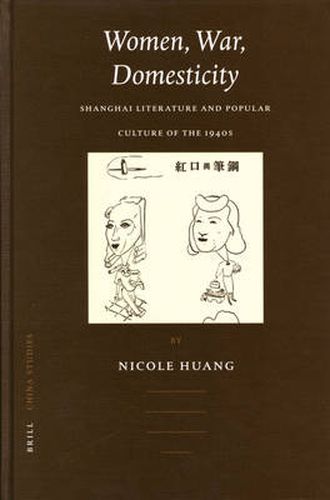Readings Newsletter
Become a Readings Member to make your shopping experience even easier.
Sign in or sign up for free!
You’re not far away from qualifying for FREE standard shipping within Australia
You’ve qualified for FREE standard shipping within Australia
The cart is loading…






In December 1941, the fifth year in an all-scale cataclysmic Sino-Japanese war that devoured much of Eastern China, the city of Shanghai entered into an era of full occupation. This was the moment when a group of young women authors began writing and soon took over the cultural scene of the besieged metropolis. Women, War, Domesticity reconstructs cultures of reading, writing, and publishing in the city of Shanghai during the three years and eight months of Japanese occupation. It specifically depicts the formation of a new cultural arena initiated by a group of women who not only wrote, edited, and published, but also took part in defining and transforming the structure of modern knowledge, discussing it in various public forums surrounding the print media, and, consequently, promoting themselves as authoritative cultural commentators of the era.
$9.00 standard shipping within Australia
FREE standard shipping within Australia for orders over $100.00
Express & International shipping calculated at checkout
In December 1941, the fifth year in an all-scale cataclysmic Sino-Japanese war that devoured much of Eastern China, the city of Shanghai entered into an era of full occupation. This was the moment when a group of young women authors began writing and soon took over the cultural scene of the besieged metropolis. Women, War, Domesticity reconstructs cultures of reading, writing, and publishing in the city of Shanghai during the three years and eight months of Japanese occupation. It specifically depicts the formation of a new cultural arena initiated by a group of women who not only wrote, edited, and published, but also took part in defining and transforming the structure of modern knowledge, discussing it in various public forums surrounding the print media, and, consequently, promoting themselves as authoritative cultural commentators of the era.